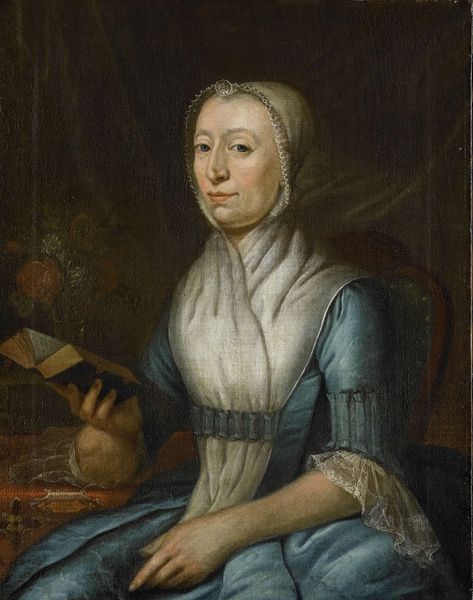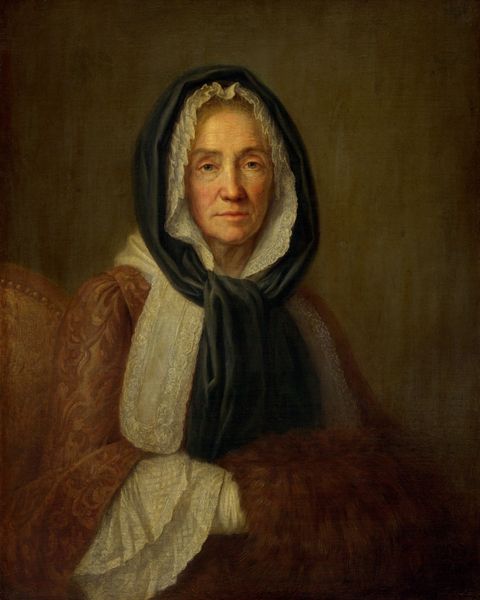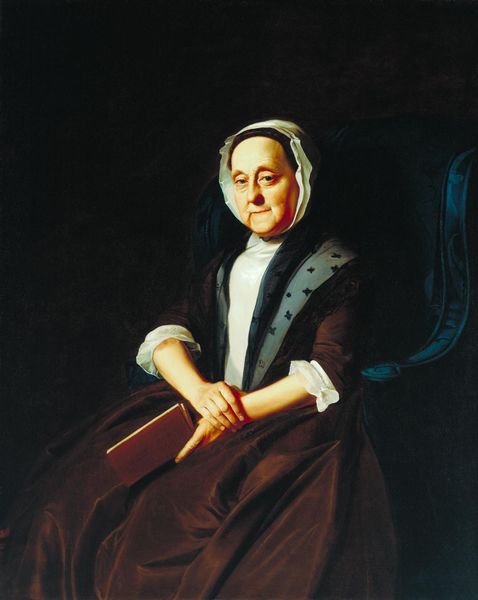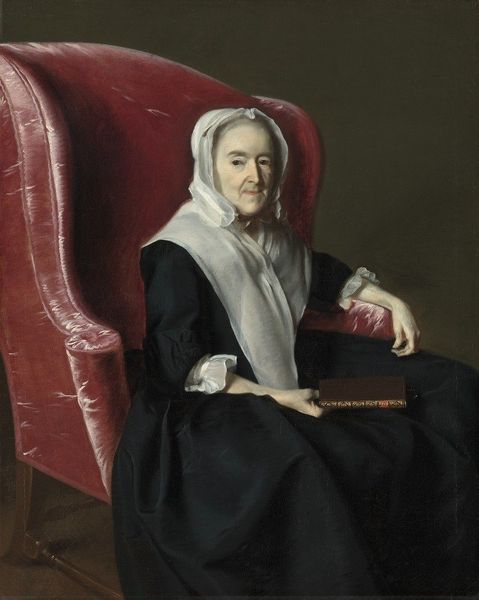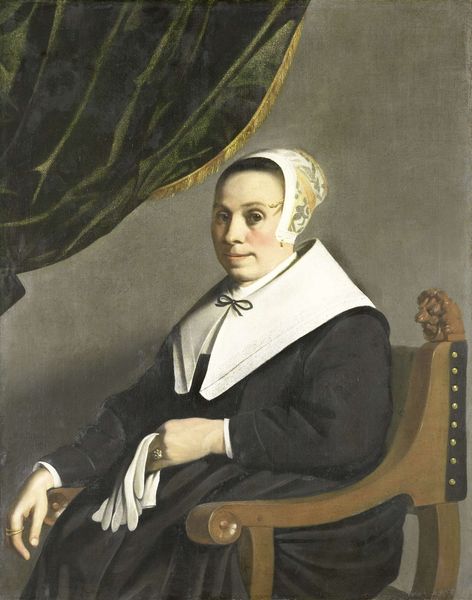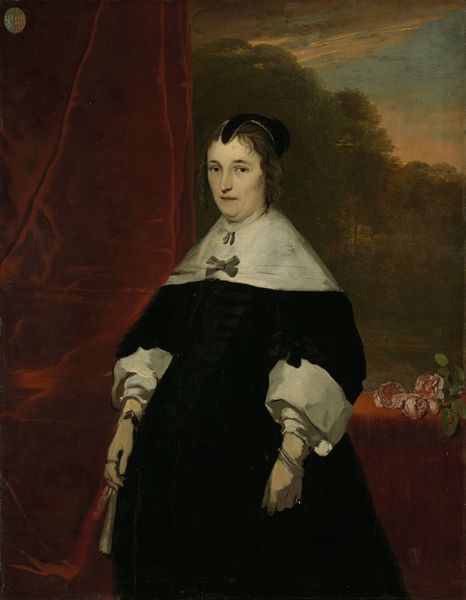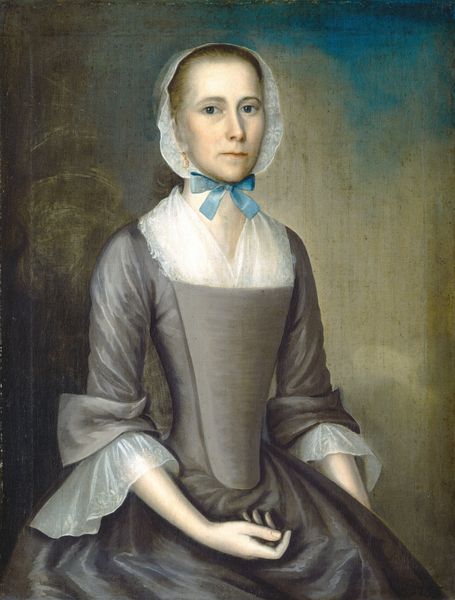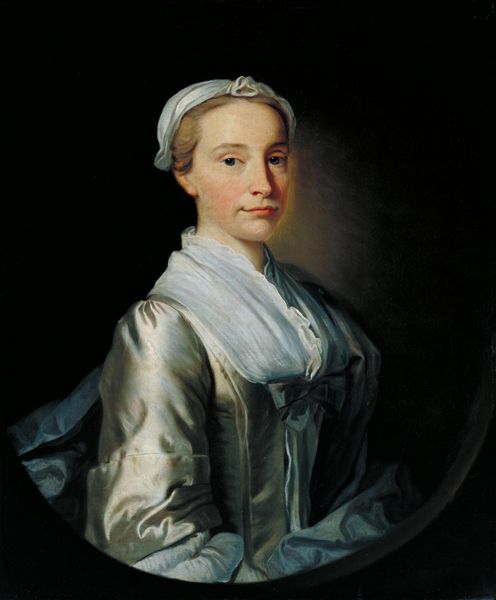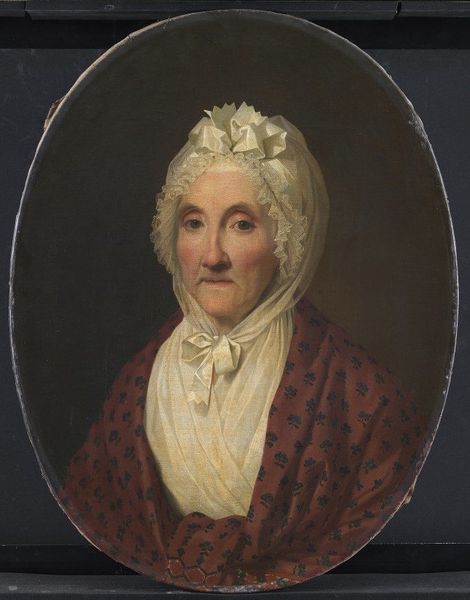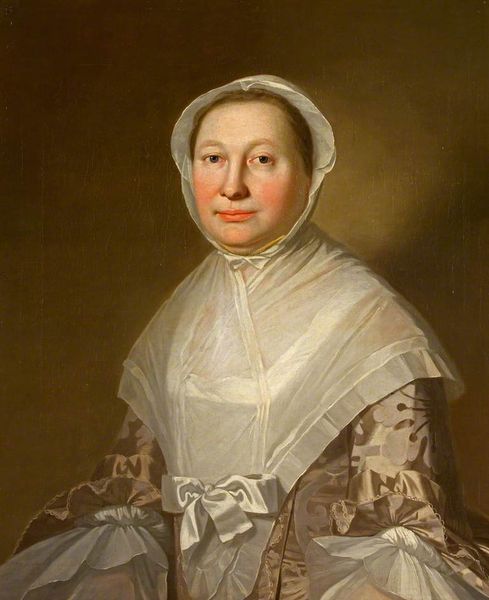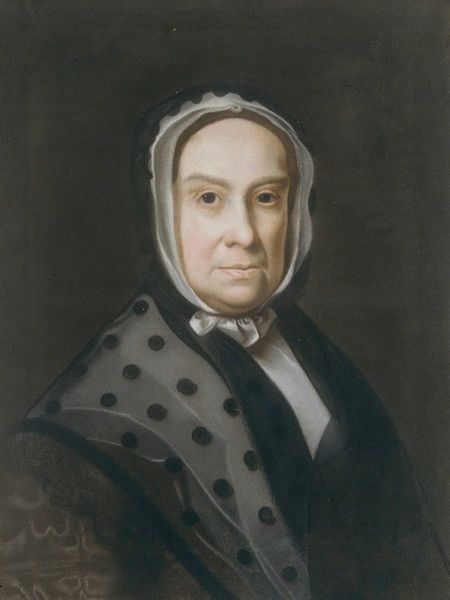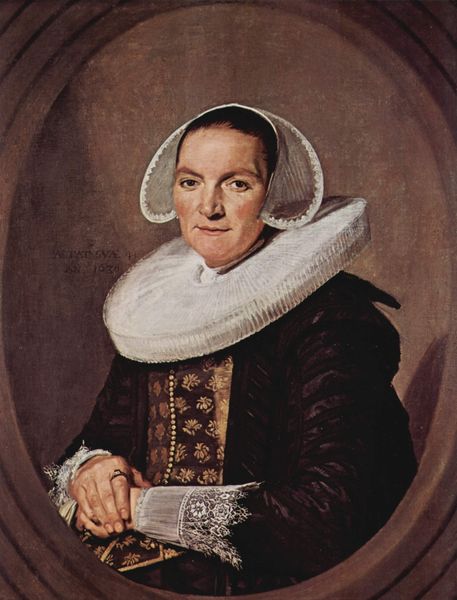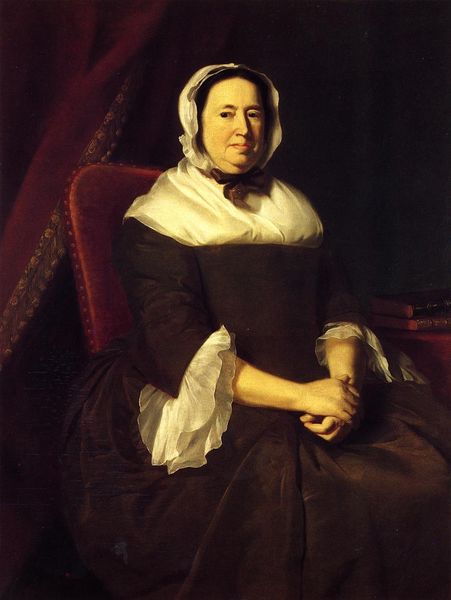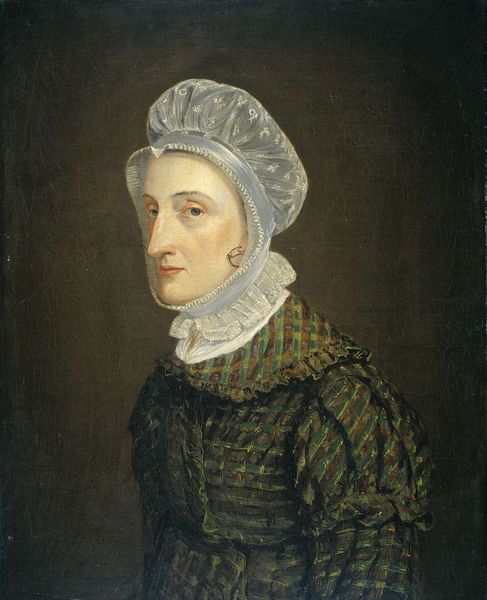
Dimensions: support: 1268 x 1011 mm
Copyright: CC-BY-NC-ND 4.0 DEED, Photo: Tate
Curator: This is Allan Ramsay's "Lady Hall of Dunglass," held at the Tate. What are your first thoughts? Editor: The restrained palette, the pillar... it all speaks of solidity, of permanence. There's a quiet power here. Curator: Indeed. Let's consider the context. Ramsay, a leading portraitist of the Scottish Enlightenment, paints Lady Hall within the conventions of aristocratic portraiture. Yet, what does her severe black dress and simple cap communicate about her identity as a woman in this era? Editor: Precisely! The books hint at intellectualism, yet her gaze is direct, almost challenging. The pillar symbolizes strength, but also perhaps the societal constraints upon her. Curator: And the muted colors? Do they reflect a somber worldview or a deliberate assertion of modesty against the Rococo excesses of the time? Editor: Both, perhaps. Ramsay uses these symbols to capture not just a likeness but a complex intersection of class, gender, and personal conviction. Curator: It certainly prompts us to think about the expectations placed on women of her station. Editor: Absolutely. This portrait, seemingly straightforward, reveals layers of meaning with each consideration.
